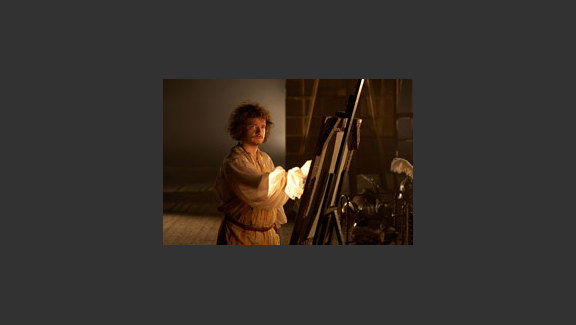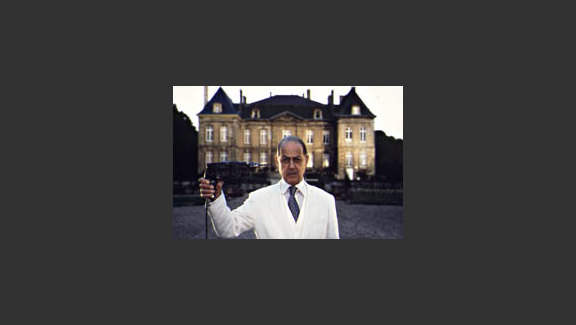Goltzius and the Pelican Company
Synopsis
Details
- Year
- 2012
- Type of project
- Features
- Running time
- 128 mins
- Format
- Red
- Director
-
Peter Greenaway
- Producer
- Kees Kasander, Suza Horvat
- Co-Producer
- Mike Downey, Catherine Dussart, Igor Nola, Sam Taylor,
- Executive Producer
- Phil Hunt, Compton Ross, Ineke Kanters
- Editor
- Elmer Leupen
- Screenwriter
- Peter Greenaway
- Director of Photography
- Reinier van Brummelen
- Production Designer
- Ben Zuydwijk
- Sound
- Maarten van Gent
- Composer
- Marco Robino
- Principal cast
- F. Murray Abraham, Flavio Parenti, Lars Eidinger, Halina Reijn
Genre
Categories
Production Status
Production Company
Kasander Film
Delftsestraat 333013 AE
Rotterdam
The Netherlands
Tel: +31 (0)10 43 33 043
Fax: +31 (0)10 43 33 061
Film & Music Entertainment Ltd.
16-17 Wardour MewsLondon
W1F 8AT
UK
Tel: +44 (0)20 7183 6544
Fax: +44 (0)20 7691 9712
Catherine Dussart
25, rue GambettaBoulogne
France
Tel: +33 1 46 05 00 22
Fax: +33 1 46 05 02 59
Eurimages
Agora BuildingAllee des Droits de l'Homme
Strasbourg
France
Tel: +33 3 88 41 26 40
Sales Company
Bankside Films
Douglas House3 Richmond Buildings
London
W1D 3HE
UK
Tel: +44 (0)20 7734 3566
Page updates
This page was last updated on 12th May 2025. Please let us know if we need to make any amendments or request edit access by clicking below.
See also
You may also be interested in other relevant projects in the database.
 Nightwatching
Nightwatching
Director: Peter Greenaway
Year: 2008
The year 1642 marks the turning point in the life of the famous Dutch painter, Rembrandt, turning him from a wealthy respected celebrity into a discredited pauper. At the insistence of his pregnant wife Saskia, Rembrandt has reluctantly agreed to paint the Amsterdam Musketeer Militia in a group portrait that will later become to be known as The Nightwatch. He soon discovers that there is a conspiracy afoot with the Amsterdam merchants playing at soldiers manoeuvring for financial advantage and personal power in, that time, the richest city in the Western World. Rembrandt stumbles on a foul murder. Confident in the birth of a longed-for son and heir, Rembrandt is determined to expose the conspiring murderers and builds his accusation meticulously in the form of the commissioned painting, uncovering the seamy and hypocritical side to Dutch Society in the Golden Age.
 The Tulse Luper Suitcases Part 1 - The Moab Story
The Tulse Luper Suitcases Part 1 - The Moab Story
Director: Peter Greenaway
Year: 2004
The Tulse Luper Suitcases is a sweeping trilogy/epic about the life and times of Tulse Luper, a man bigger than the world itself. The film covers some sixty years of recent history from 1928 when the existence of a substance called Uranium was discovered, to the collapse of the Berlin Wall and the end of the Cold War in 1989. Tulse Luper, a writer and project-maker, is caught up in a life of prisons. There are a total of sixteen prisons in the story starting in South Wales, when Luper is ten years old, locked up for three hours by his father in a coalhouse for running the gauntlet of a series of backyard gardens to sign his name on a crumbling brick wall that collapses. Twelve years later in 1938 in Moab, Utah, Luper is arrested through his contact with an American-German family about to travel to Europe to engage explotatively in the Second World War. Four members of this family, deeply fascinated with Luper, will act as his jailers, with others interested in uranium, around Europe for the next ten years. In the Cold War years he is imprisoned in Moscow and Siberia, before appearing in Hong Kong and Kyoto. In the 1980's Luper was apparently sighted in Beijing and in Shanghai. He was last seen in a Manchurian desert. Luper learns to use his prison time, writing on the prison walls, inventing projects in literature, theatre, film and painting, and engaging with his jailers in all manner of plots, schemes and adventures. Because of their responsibilities, jailers are as much prisoners of their prisoners as they are freemen, and this connection between jailer and prisoner permeates this project and provides a geat deal of its drama. As Luper's reputation as a writer and project-maker grows in Europe and America, so his person becomes more fictional. A large 'Luper' Symposium and Ehibition is held in the Brooklyn Museum in New York. Many Luper lecturers offer their theories and propositions on the various stages of Luper's life. The central exhibit of the conference and exhibition is a collection of 92 suitcases - 92 appropriately being the atomic number of uranium - suitcases that Luper has supposedly been associated with in his travels and prisons. Over the years, the suitcases come to light all over the world. On the last evening of the 'Luper' New York Conference, a long awaited Luper suitcase - suitcase 92 - is opened.
 Eight and a Half Women
Eight and a Half Women
Director: Peter Greenaway
Year: 1999
Eight and a Half Women is a laconic black comedy, an examination of the age-old phenomenon of male sexual fantasy, its roots and its consequences. A quiet rich Swiss businessman, whose wealth comes from the many Japanese pachinko parlours he owns, lives in Geneva. His son lives in Kyoto, and is fascinated by earthquakes. When the father's much-loved wife dies, the son tries hard to help his father overcome his grief by introducing him to, among other things, Fellini films, awakening in him a new desire for women. To accommodate this, the two of them create their own domestic bordello with women they rescue from pachinko parlour gambling debts and other situations of shady finance around Europe. The film tells the story of the brothel, and its eight and a half women, that lasts three years before being broken up and finally destroyed in an earthquake.
